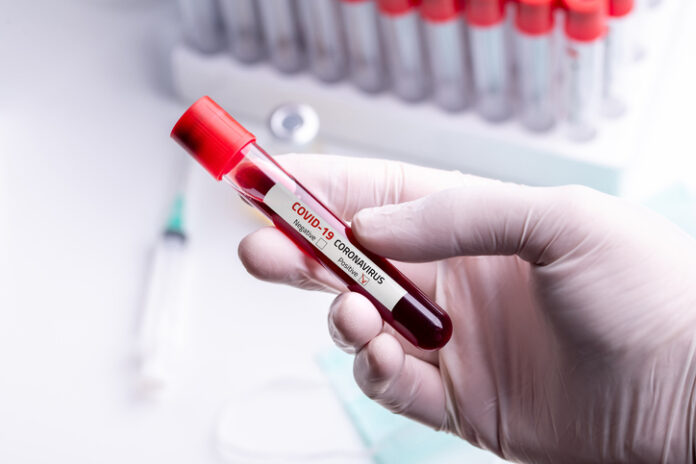The Food and Drug Administration (FDA) approved a COVID-19 treatment that uses the antibodies in the blood plasma of patients who have recovered from the disease.
The August 23 decision and announcement, made under emergency use authorization (EUA), is the FDA’s latest move to manage the pandemic, which has taken the lives of more than 180,000 Americans and hundreds of thousands more worldwide, along with inflicting severe damage to the global economy.
Unlike FDA’s drug approval process, which involves lengthy clinical trials, the standards for issuing an EUA are much lower. The purpose of an EUA is to increase patient access to potentially life-saving treatment during a public-health emergency, after gathering sufficient evidence that the potential benefits outweigh the risks. EUAs were issued for previous respiratory viruses, including H1N1, SARS, and MERS. They are temporary, and, in the case of convalescent plasma (plasma from recovering patient), the EUA applies only to hospitalized patients.
The FDA reviewed data from a dozen studies and from an FDA-sponsored expanded-access study led by the Mayo Clinic. The Mayo Clinic study used data from more than 90,000 patients treated with plasma. Drawing on data from a subset of about 1,000 of those patients, it found that those receiving a high level of antibodies showed a roughly 35 percent survival advantage over patients who got plasma with lower antibody levels. Most patients who benefitted were under age 80, not on mechanical ventilators, and received the plasma within 72 hours of being diagnosed with the virus.
Benefits of Early Treatment
The use of plasma to treat disease is not new, says Jane Orient, M.D., executive director of the Association of American Physicians and Surgeons (AAPS) and policy advisor to The Heartland Institute, which co-publishes Health Care News.
“Before the discovery of antibiotics, type-specific serum from recovered patients was used to treat otherwise hopeless pneumococcal pneumonia,” Orient said.
The FDA issued a note of caution with the EUA approval.
“The finding of a dose-response between antibody level and reduction in mortality provides evidence that the antibody is the active agent in convalescent plasma for treatment of COVID-19,” the agency stated in its announcement. “Current evidence suggests that benefit is most likely in patients treated early in the course of the disease (e.g., prior to intubation).”
Plasma Pushback
There was confusion regarding a statement FDA Commissioner Stephen Hahn said on the day of the announcement with President Trump and Health and Human Services Secretary Alex Azar. Hahn told reporters if the data continue to pan out, “[of] 100 people who are sick with COVID-19, 35 would have been saved because of the administration of plasma.” A day later, Hahn acknowledged that he had misspoken and wrote in a tweet, “What I should have said better is that the data show a relative risk reduction rather than an absolute risk reduction.”
Media organizations seized upon the clarification as evidence that FDA had rushed its decision on the EUA. Biopharma Dive on September 2 reported a panel of advisers to the National Institutes of Health (NIH) concluded the data were “insufficient” to recommend “either for or against the use of convalescent plasma against COVID-19.”
A (TBA) New York Times report stated Anthony Fauci, M.D., the director of the National Institutes for Allergy and Infectious Diseases, and Francis Collins, the director at NIH, were part of a panel that urged the FDA to delay authorizing plasma for COVID-19 until more data were gathered. The same NIH panel cautioned against using hydroxychloroquine (HCQ) in treating COVID-19 patients three weeks after the FDA cleared the use of the treatment to combat the pandemic, a move the FDA later rescinded.
Repeat of HCQ?
The controversy surrounding the FDA’s action on convalescent plasma has drawn comparisons with how the agency, earlier in the year, first approved emergency use of HCQ to combat the coronavirus, and then withdrew the approval.
Noting that the FDA approved plasma treatment before clinical trials could be conducted, Orient points out that the agency “continues to obstruct the use of a long-established antimicrobial that can also be used in outpatients, to prevent the need for hospitalization.”
“FDA denied an EUA request for HCQ for preventive and early treatment of COVID-19 filed by Dr. John McKinnon’s team at Henry Ford Hospital in Detroit and supported by Dr. Henry McCullough’s cardiology team at Baylor Heart and Vascular Institute in Dallas,” Orient said. “A clinical trial given early to hospitalized patients at Henry Ford Health System showed a 51 percent reduction in mortality.”
Because of the FDA’s negative statements about HCQ, patients are having great difficulty obtaining it, Orient says. AAPS filed a suit against the FDA’s restrictions in June and has asked the Sixth Circuit Court of Appeals to order the agency to release the Strategic National Stockpile of HCQ to pharmacies willing to dispense it to the public.
The FDA and COVID-19 Vaccines
The pushback on plasma and HCQ could be a preview of a bigger fight, that of COVID-19 vaccines, says Jeff Stier, senior fellow at the Consumer Choice Center.
At issue is the two criteria FDA uses to judge a drug or treatment, safety and efficacy, Stier says.
“FDA Commissioner Hahn has set a 50 percent efficacy rate as a minimum for approving a vaccines, even if authorization is limited to high-risk populations, such as health workers,” Stier said.
“For vaccines likely to be distributed quickly and widely, safety is paramount,” Stier said. “But denying access to a safe vaccine against a pandemic-causing novel coronavirus because it’s less than 50 percent effective could do more harm than good. The annual influenza vaccine is often less than 50 percent effective, and yet we properly encourage people to get vaccinated against the flu.”
Bonner R. Cohen, Ph.D., (bcohen@nationalcenter.org) is a senior fellow at the National Center for Public Policy Research.





















[…] article presents a flowchart showing the course of treatment for confirmed COVID-19 cases. Self-quarantine at home and allowing plenty of fresh air to reduce re-inoculation, along with zinc […]